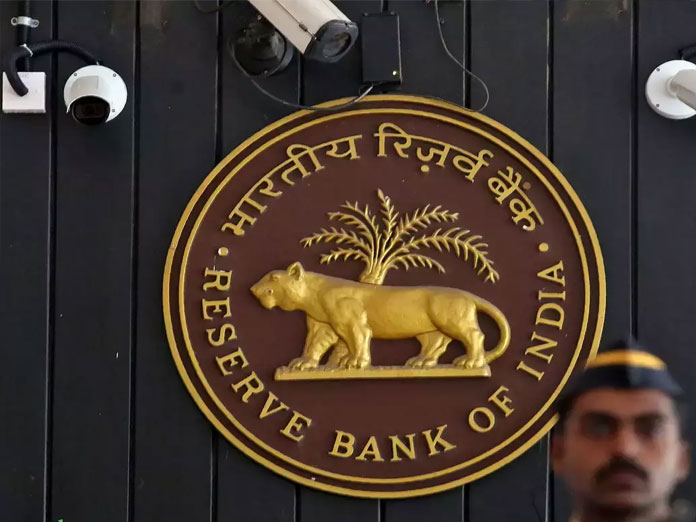Live
- Game Changer and Daku Maharaj: AP High Court Imposes Ticket Price Limits
- Theekshana becomes seventh Sri Lanka bowler to claim hat-trick in ODI
- Andhra Pradesh: No First-Year Exams from 2025
- Nara Lokesh Declares State's Ambition to Become a Global Digital Technology Hub
- Wanaparthy collector directs to provide security at EVM warehouse
- Ram Charan: Why the Hate? House Searches, Viral Tweets & More Before Game Changer Release
- Tamil Nadu CM Requests to Reschedule UGC-NET Exams During Pongal Festival
- K’taka BJP slams Cong govt over facilitating surrender of Maoists
- Watch: Teaser of Yash’s Upcoming Film ‘Toxic’, Full Trailer Coming Soon
- Six Naxals Set to Surrender at Karnataka CM’s Office
Just In

Ahead of the monetary policy review, India Inc on Thursday urged the Reserve Bank of India RBI to cut interest rate and reserve ratio to prop up growth
CII lauded the RBI for steps taken to ease financing challenges faced by the real sector.
New Delhi: Ahead of the monetary policy review, India Inc on Thursday urged the Reserve Bank of India (RBI) to cut interest rate and reserve ratio to prop up growth.
In a meeting with RBI Governor Shaktikanta Das in Mumbai, industry chambers suggested various measures to ease tight liquidity situation and reduce high cost of credit in the light of consistently falling inflation.
The Confederation of Indian Industry (CII) suggested the policy measures required to ease the tight liquidity situation by effecting a cut in cash reserve ratio (CRR) by at least 50 basis points (bps), measures to facilitate flow of credit to industry, especially to MSMEs and the infrastructure sector, and steps to address the high cost of credit by considering a reduction of 50 bps in repo rate given that inflation has been consistently low, the chamber said in a statement.
Suggestions come ahead of the sixth bi-monthly monetary policy statement for 2018-19 scheduled to be announced on February 7. CRR, currently at 4 per cent, is the percentage of deposits kept as reserves with the RBI. Repo rate, currently at 6.5 per cent, is the rate at which the central bank gives loans to the banks.
CII lauded the RBI for steps taken to ease financing challenges faced by the real sector, especially micro, small and medium enterprises (MSMEs), through various measures such as reducing Turn Around Time (TAT) and measures to boost liquidity in the economy.
On measures to address the financial challenges faced by the MSMEs, CII suggested that the RBI consider limiting the collaterals sought by banks to 133 per cent of the exposure and eliminate the need for personal guarantees where sufficient collateral exists.
The chamber delegation, led by its president designate Uday Kotak, also suggested that letters of undertaking (LoUs) for buyers' credit for the cases where MSMEs investing to expand capacity may be permitted and the RBI might consider allowing banks to sanction buyers' credit facility to MSMEs, wherever import of raw materials is being done under letter of credit.
The Federation of Indian Chambers of Commerce and Industry (FICCI) also made a pitch for a cut in repo rate and CRR to enable lowering of lending rates by banks.
A reduction in repo rate and CRR would help in reviving the investment cycle in the country and will also boost consumption and support growth, FICCI President Sandip Somany said. It will also help in reviving the investment cycle in the country and will also boost consumption and support growth.
"The need of the hour is to have an accommodative monetary policy, focusing on growth. The objectives of the Monetary Policy Committee should not be restricted to only price stability but also to consider growth and exchange rate stability," he said.
On the RBI's February 12 circular, CII highlighted that while it was aimed at improving the credit discipline and early identification of probable defaults, but it has, however, put pressure on already distressed sectors impacted due to business performance reasons and, hence, should be given sufficient time to resolve the defaults.
Among many key recommendations, CII recommended that the RBI may revisit the lending restrictions on the weak banks under prompt corrective action and consider allowing them to lend to the National Housing Bank which, in turn, can be used to finance housing projects through housing finance companies.

© 2024 Hyderabad Media House Limited/The Hans India. All rights reserved. Powered by hocalwire.com







